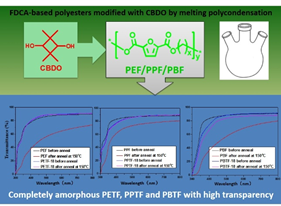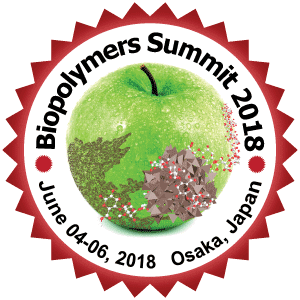
Dr. Xiaoqing Liu
Full professor in Ningbo Institute of Materials Technology and Engineering (NIMTE
Title: Synthesis of Bio-based Polyesters from 2,5-furandicarboxylic acid (2,5-FDCA): From Completely Amorphous to High Crystallinity
Biography
Biography: Dr. Xiaoqing Liu
Abstract
Due to the diminishing crude oil reserve and worsening environmental pollution, more and more attention has been paid on the synthesis of polymers derived from renewable resources. However, the thermal and mechanical properties of current bio-based polymers are still subjects to be improved when compared with the petroleum-based engineering plastics like poly(ethylene terephthalate) (PET) and polycarbonate (PC). The lack of aromatic or rigid segments in their molecular architectures should be responsible for the relatively low performance. 2,5-furandicarboxylic acid (FDCA) is a promising bio-based platform chemical, which has been referred to as a “sleeping giants” by DuPont and DSM due to its potential as the bio-based substitute for terephthalate (TPA). The FDCA-based polyester, poly (ethylene 2, 5-furandicarboxylate) (PEF) demonstrats similar mechanical and thermal properties as well as better barrier properties when compare with its petroleum-based counterpart PET. However, the poor crystallizability of PEF severely limits its application fields, especially when the high transparent and heat-resistant properties, or the high crystallinity was required. In our work, several novel cyclic diols, including 1, 4-cyclohexanedimethanol (CHDM) and 2, 2, 4, 4-tetramethyl-1, 3-cyclobutanediol (CBDO), were employed as the monomer or co-monomer to polymerize with FDCA and the high molecular weight polyesters were synthesized. Results showed that these bio-based polyesters could be varied from completely amorphous to high crystallinity, which has the potential to be used as high transparent packaging materials or polyester engineering plastics, respectively. Based on our results, the bio-based substitute for PET with better comprehensive performance could be developed


